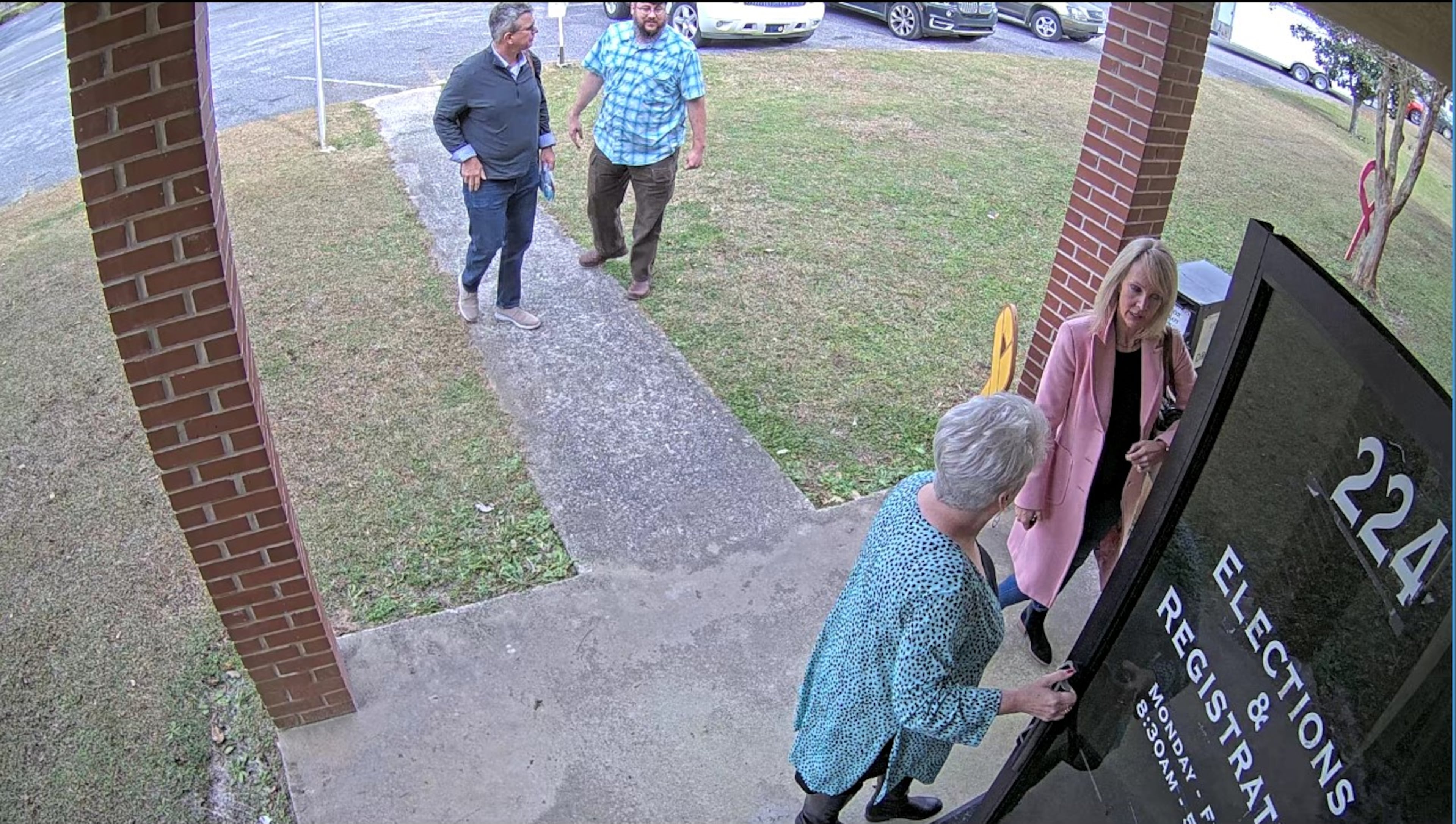Emails show Sidney Powell’s ties to copying Georgia election data

Although attorney Sidney Powell is now denying that she had much to do with a South Georgia elections breach, public records indicate she was deeply involved.
Powell’s nonprofit organization paid $26,000 for computer analysts to copy Georgia’s statewide voting system software in Coffee County on Jan. 7, 2021, the day after a riot at the U.S. Capitol, according to an invoice.
The analysts sent several emails to her about their progress as they worked.
And she represented Cathy Latham, a Republican Party official who escorted the analysts into the county’s elections office, in a lawsuit that promised to “unleash the kraken” on alleged fraud — fraud that was never found.
Powell is one of 19 people, including former President Donald Trump, who is facing conspiracy charges in Georgia alleging that they tried to change the outcome of the election by pressuring election officials, creating a slate of fake Republican presidential electors, harassing election workers and taking election data that was supposed to be kept secure.
Powell’s attorney wrote in a motion Wednesday that she didn’t sign a contract for forensic imaging of Coffee County’s voting system, she “did not plan or organize the Coffee County trip,” and she didn’t request tech firm SullivanStrickler to undertake the project.

But emails and court documents show that Powell’s nonprofit organization, Defending the Republic, paid SullivanStrickler technicians for the Coffee County job, and they corresponded with her as they worked. Powell is the president of Defending the Republic.
“Everything went smoothly yesterday with the Coffee County collection. Everyone involved was extremely helpful,” SullivanStrickler Chief Operating Officer Paul Maggio wrote in an email to Powell on Jan. 8, 2021. “We are consolidating all of the data collected and will be uploading it to our secure site for access by your team. Hopefully we can take care of payment today.”
Public records don’t show any response from Powell to SullivanStrickler, but they do reveal the invoice for their work.
Powell previously authorized payment to SullivanStrickler for election data copying work in Antrim County, Michigan, according to an email she sent Dec. 8, 2020.
Powell’s attorney pushed back on the indictment’s allegations that she was a key player in the copying of Coffee County ballots, memory cards and software. The data was later distributed through a file-sharing site to conspiracy theorists across the country.
“Ms. Powell did not agree with any of her purported co-conspirators to do anything improper, and many of her purported co-conspirators publicly shunned and disparaged Ms. Powell beginning in November 2020. Others she does not know or had no contact with at all,” her attorney, Brian Rafferty, wrote in a motion to sever her case from the other defendants.

Powell’s motion says there was no contract with SullivanStrickler, she wasn’t the attorney overseeing the data collection, and the Coffee County elections board gave analysts permission to copy the data. Documents showing whether they were given permission haven’t been made public, and the state’s election software was supposed to be kept secure.
Rafferty didn’t respond to requests for comment.
Powell’s statements distancing herself from the Coffee County incident are misleading, said Marilyn Marks, executive director for the Coalition for Good Governance, an organization suing the state over election security. The lawsuit uncovered the election data copying last year, evidence that led to some of the Fulton County charges.
“She was obviously the force behind this plan and the funding of it,” Marks said. “She may parse words to imply that she was not involved; however, the record is clear that she was very involved. Without her funding and arrangement of it, it probably would not have happened.”
Along with Powell, three of the other 19 defendants in the case are accused of crimes related to Coffee County, including Latham, bail bondsman Scott Hall and then-Coffee County Elections Supervisor Misty Hampton. The charges include racketeering, conspiracy to commit election fraud, computer theft, computer trespass and invasion of privacy.
Rafferty’s motion asks Fulton County Superior Court Judge Scott McAfee to hold a hearing to decide whether Powell should be tried separately from the other defendants. A hearing hasn’t been scheduled yet.



